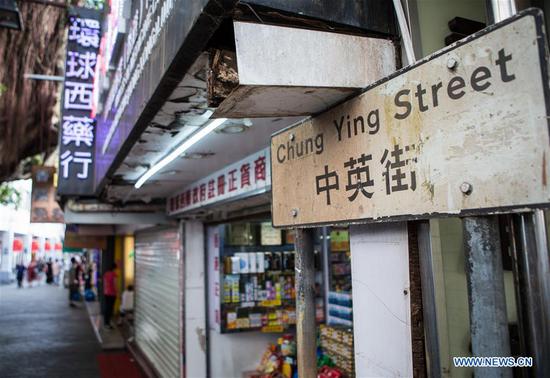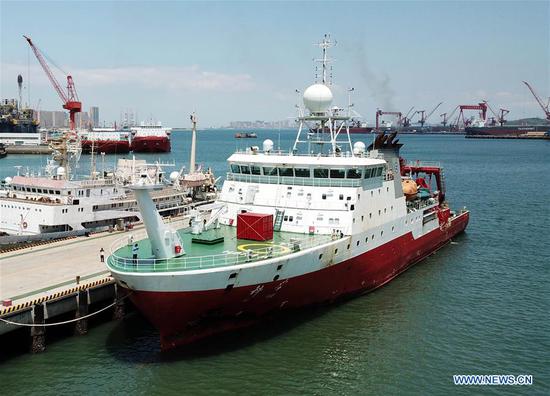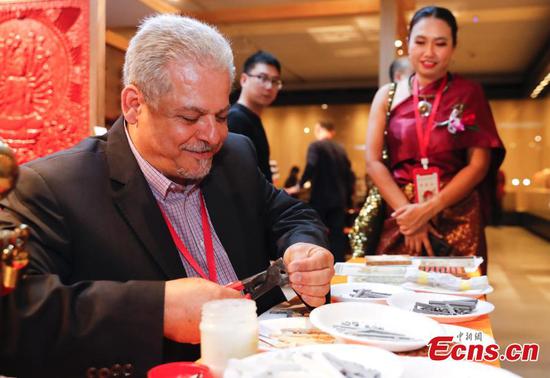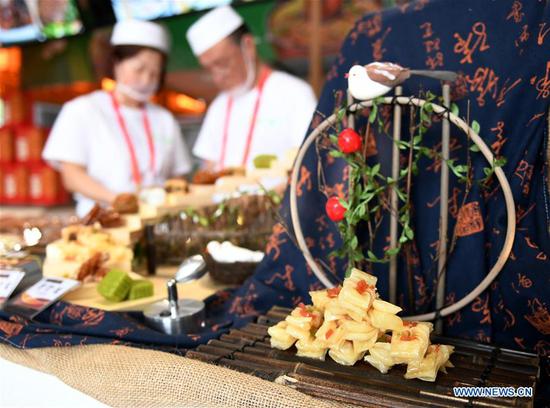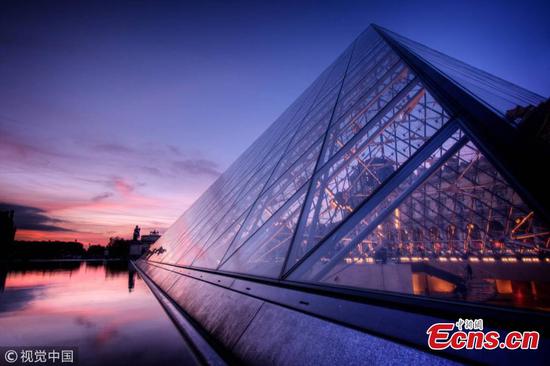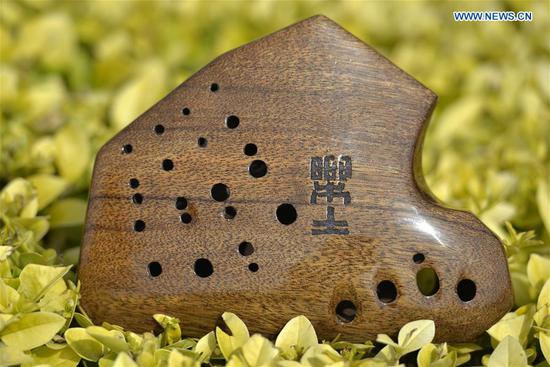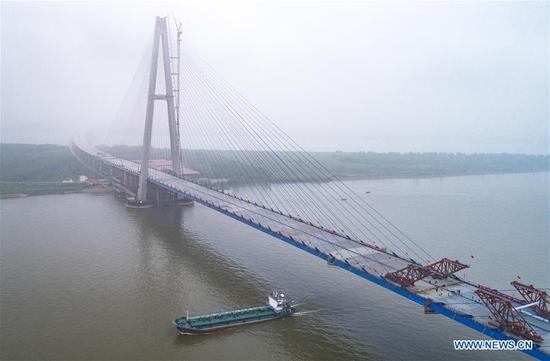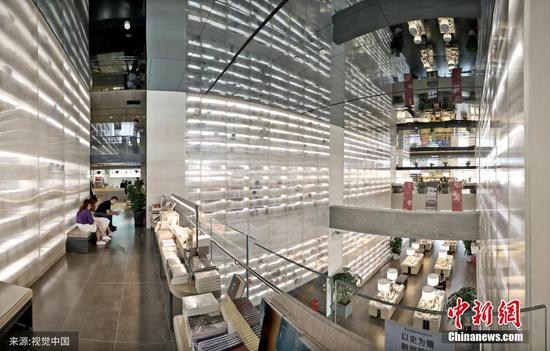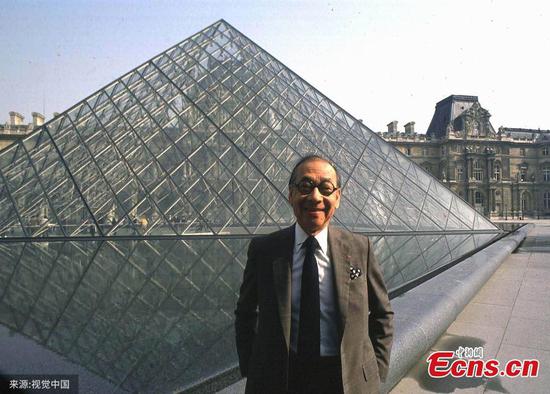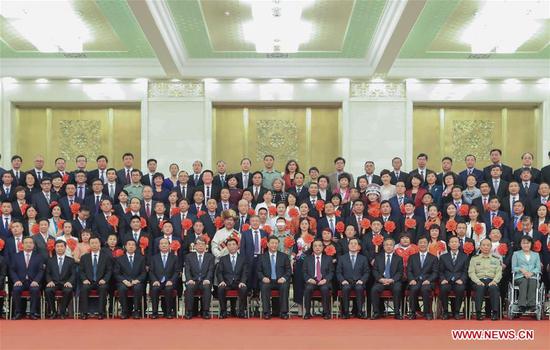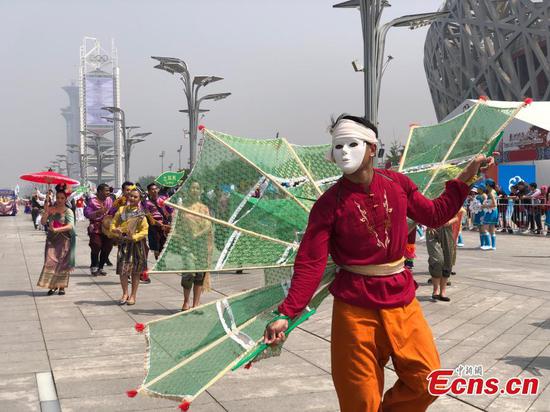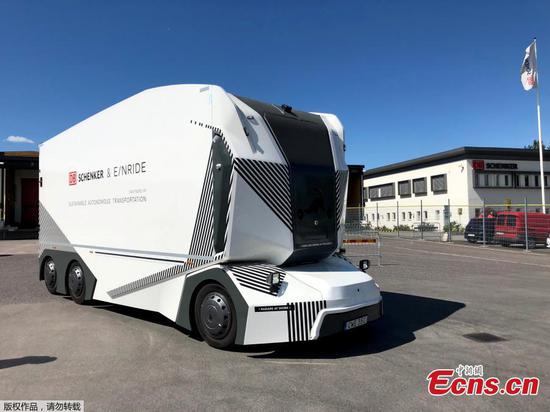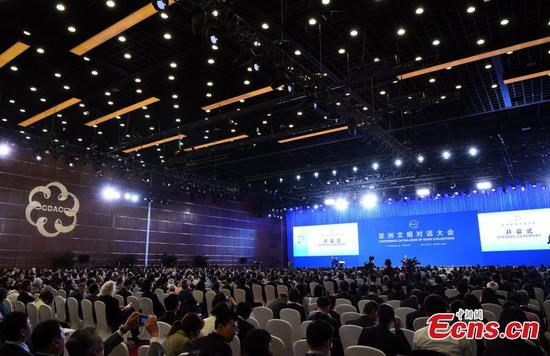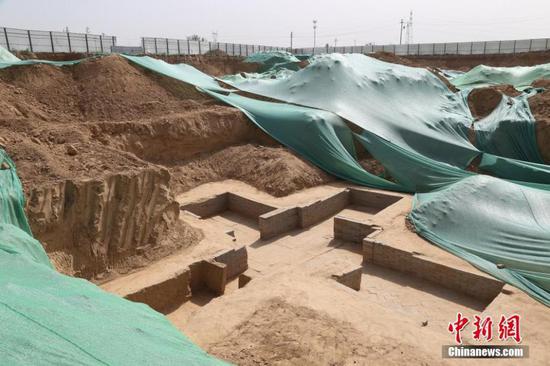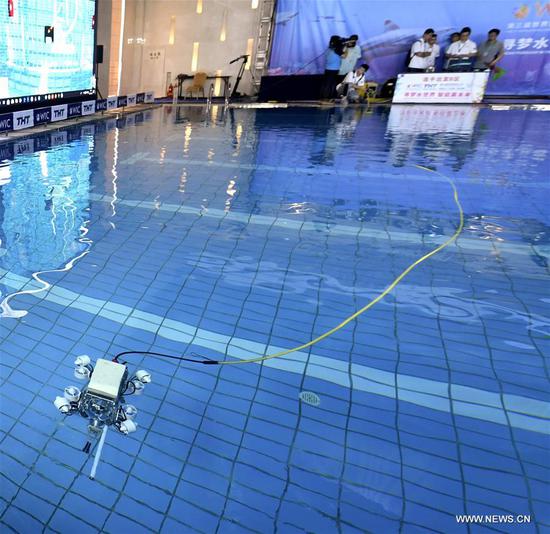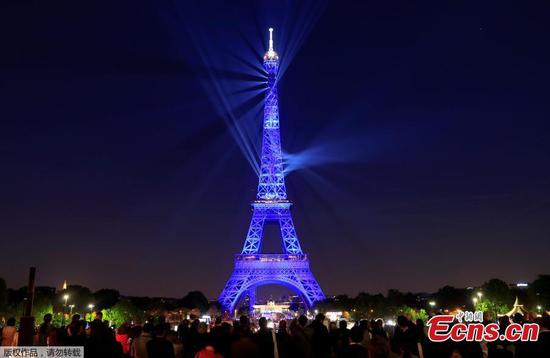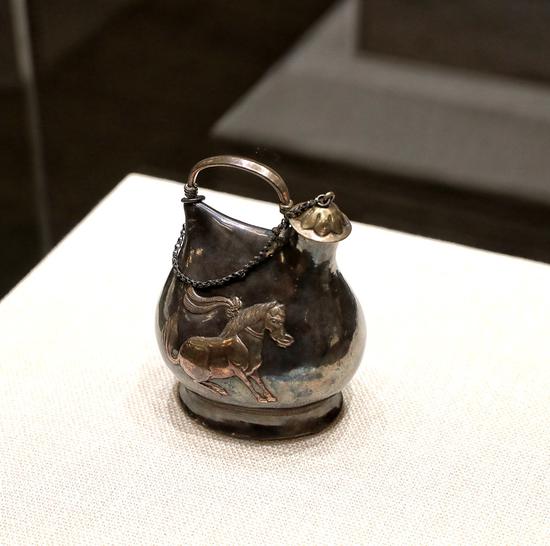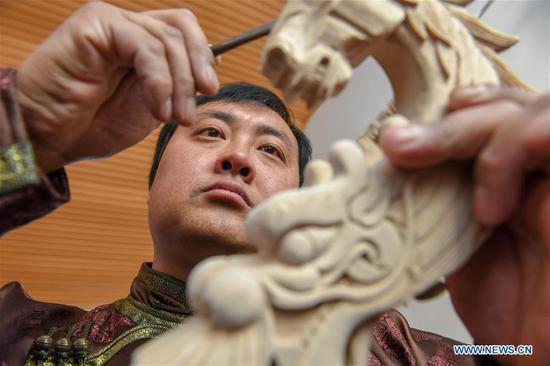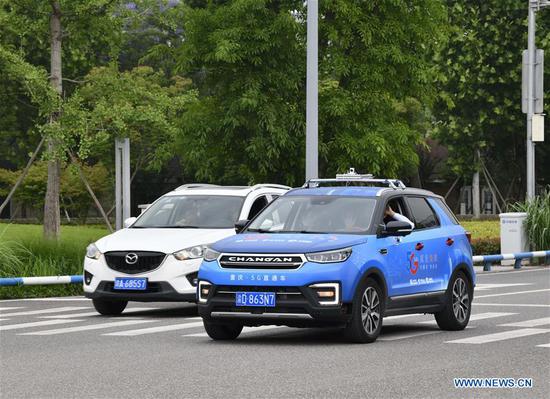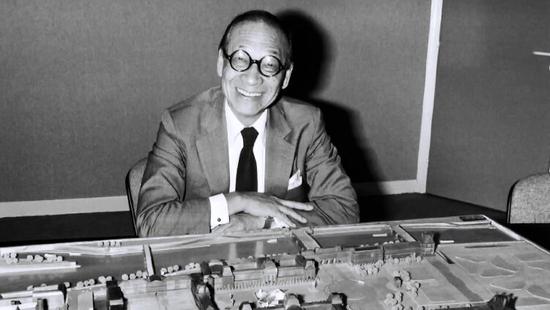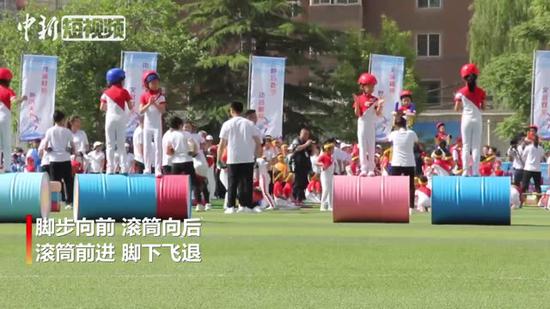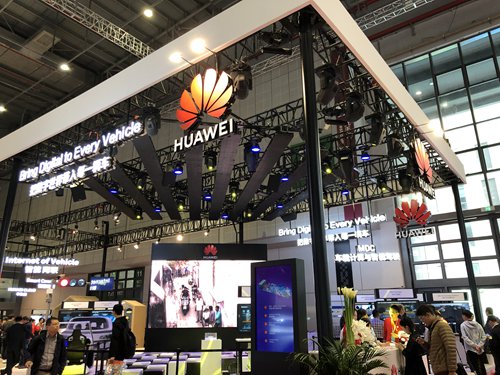
A view of Huawei's stand during the Shanghai Auto Show in April. (Photo: Zhang Hongpei/GT)
Washington urged not to go too far, stop hurting industry
China's top diplomat is urging the U.S. "not to go too far" after Washington imposed further restrictions on Huawei, which the Shenzhen-based Chinese tech giant said it has been preparing for and will be able to continue its business as usual.
Huawei founder Ren Zhengfei said on Saturday that his company has not violated any law, and it "will be fine" even if American suppliers like Qualcomm are not allowed to sell chipsets to the company.
Ren's remarks, which were made to Japanese media on Saturday, came after the Trump administration announced it would impose export controls on purchases made by Huawei, which is the largest telecom equipment provider worldwide and has played a leading role in the coming 5G network.
The U.S. Commerce Department said Wednesday it is adding Huawei and its 70 affiliates to a so-called Entity List, which will ban the Chinese telecom giant from buying parts and components from U.S. companies without U.S. government approval.
Among more than 90 unveiled core suppliers of Huawei worldwide, 33 are from the U.S., the company said last year.
Reuters reported over the weekend that the U.S. is likely to scale back restrictions on the Chinese firm in order to mitigate the impact on American firms and the global supply chain. Washington is considering issuing a temporary general license to "prevent the interruption of existing network operations and equipment," it said.
The U.S. side has recently made remarks and taken actions that are harmful to Chinese interests in various fields, including cracking down on Chinese enterprises' normal operations through political measures, Chinese State Councilor and Foreign Minister Wang Yi told U.S. Secretary of State Mike Pompeo in a phone conversation on Saturday, the Xinhua News Agency reported.
"We urge the U.S. side not to go too far," Wang told Pompeo, noting that the U.S. should change its course as soon as possible so as to avoid further damaging bilateral ties.
Very little information about the phone call was released by the U.S. side. Pompeo and Wang discussed elements of the bilateral relationship, including U.S. concerns about Iran, according to the website of the U.S. Department of State.
Wang's phone call with Pompeo aimed to show China's firm stance on the stalled trade talks, as Washington should be blamed for ongoing divergences, Mei Xinyu, a research fellow at the Chinese Academy of International Trade and Economic Cooperation, told the Global Times.
"The U.S. has not shown an honest attitude for furthering talks, considering its sanctions against Huawei," Mei said. However, the call also showed that the door to further talks has not been closed for good, he said.
HiSilicon, a semiconductor company owned by Huawei, said on Friday that it has been preparing for this scenario for a very long time, and it has a backup plan.
Ren said the moves by Washington will not force Huawei to change its management and the company won't accept U.S. monitoring as it required another Chinese telecom giant, ZTE, to do.
ZTE was forced to stop most of its business between April and July 2018 due to U.S. sanctions. It paid a $1.4 billion fine to lift the sanctions and allow U.S. enforcement officers inside the company.
Huawei purchases components worth $11 billion from American suppliers. It buys chipsets from companies including Qualcomm, Intel and Marvell, and memory and storage components from Micron and Seagate, according to media reports. It also purchases software provided by companies including Oracle, Microsoft, IBM and Redhat.
Pressure and anxiety
In another development, Lenovo on Sunday denied rumors that it has stopped the sale of PCs and servers to Huawei due to the latest U.S. ban. A statement that Lenovo sent to the Global Times Sunday said that it still supplies products to Huawei, which remains an important customer.
A widely circulated post accused the tech giant, founded in China in the 1990s, of being unpatriotic and some called Lenovo "a traitor" under U.S. suppression.
"The ICT industry is paying close attention [to see] how far domestic alternatives can go [to meet demand] once the U.S. bans tech exports to a specific company," Han Xiaomin, general manager of CCID Consulting's integrated circuit division, told the Global Times on Sunday.
Han said the semiconductor industry is highly integrated globally and regionally, and it's widely believed that the U.S. government will not completely cut off ties between companies and disrupt the entire supply chain, as that would be a catastrophe for the whole industry.
Huawei's "backup" plan is giving the domestic chip-making industry a boost. A number of Chinese chipmakers are highly regarded in terms of chipset design and manufacturing, according to the China Semiconductor Industry Association (CSIA).
For example, Hisilicon and UNISOC, another leading semiconductor company, were ranked as the top two designers of 5G broadband chipsets, said CSIA. Semiconductor Manufacturing International Corp (SMIC), China's largest chipmaker, was ranked third in the world, following a joint venture with Samsung and another one with Intel in China.
SMIC's latest financial report states the Chinese chipmaker is accelerating efforts to keep up with new trends, and its main direction is targeting advanced technologies. Its self-developed chipsets will be able to supply Huawei's needs for its smartphone products, Ning Nanshan, a Shenzhen-based economics commentator, told the Global Times on Sunday.
"Huawei's smartphone business won't be as severely impacted by the U.S. ban compared to its enterprise and IT business," he said.
Still, China's homegrown chip-making industry has a long way to go before becoming self-reliant in design and production, as the industry is still dependent on electronic design automation tools, provided by U.S. software firms including Cadence and Synopsys.









